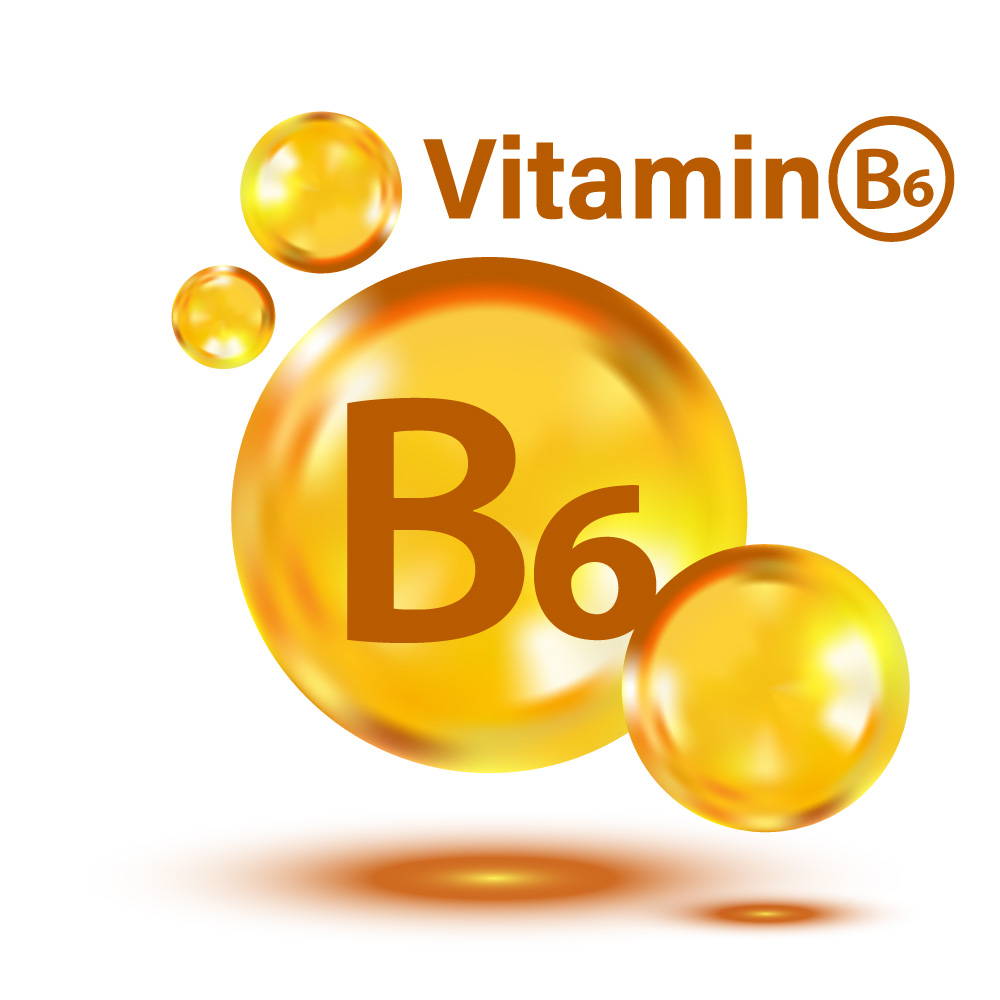SUPPLEMENT - VITAMIN
Explore our effective micro-nutrients and premium ingredients

What is vitamin B6 and what does it do?
How much vitamin B6 do I need?
LifeStage | RecommendedAmount |
Birth to 6 months | 0.1 mg |
Infants 7–12 months | 0.3 mg |
Children 1–3 years | 0.5 mg |
Children 4–8 years | 0.6 mg |
Children 9–13 years | 1.0 mg |
Teens 14–18 years (boys) | 1.3 mg |
Teens 14–18 years (girls) | 1.2 mg |
Adults 19–50 years | 1.3 mg |
Adults 51+ years (men) | 1.7 mg |
Adults 51+ years (women) | 1.5 mg |
Pregnant teens and women | 1.9 mg |
Breastfeeding teens and women | 2.0 mg |
What happens if I don’t get enough vitamin B6?
What are some effects of vitamin B6 on health?
Cancer
People with low levels of vitamin B6 in the blood might have a higher risk of certain kinds of cancer, such as colorectal cancer. But studies to date have not shown that vitamin B6 supplements can help prevent cancer or lower the chances of dying from this disease.
Cardiovascular
disease
Cognitive
Function
Some research indicates that elderly people who have higher blood levels of vitamin B6 have better memory. However, taking vitamin B6 supplements (alone or combined with vitamin B12 and/or folic acid) does not seem to improve cognitive function or mood in healthy people or in people with dementia.
Premenstrual Syndrome
Scientists aren’t yet certain about the potential benefits of taking vitamin B6 for premenstrual syndrome (PMS). But some studies show that vitamin B6 supplements could reduce PMS symptoms, including moodiness, irritability, forgetfulness, bloating, and anxiety.
Nausea and Vomiting
in Pregnancy
Can vitamin B6 be harmful?
LifeStage | UpperLimit |
Birth to 12 months | Not established |
Children 1–3 years | 30 mg |
Children 4–8 years | 40 mg |
Children 9–13 years | 60 mg |
Teens 14–18 years | 80 mg |
Adults | 100 mg |
Where can I find out more about vitamin B6?
References
1. Institute of Medicine. Food and Nutrition Board. Dietary Reference Intakes: Thiamin, Riboflavin, Niacin, Vitamin B6, Folate, Vitamin B12, Pantothenic Acid, Biotin, and Choline . Washington, DC: National Academy Press; 1998.
2. McCormick D. Vitamin B6. In: Bowman B, Russell R, eds. Present Knowledge in Nutrition. 9th ed. Washington, DC: International Life Sciences Institute; 2006.
3. Mackey A, Davis S, Gregory J. Vitamin B6. In: Shils M, Shike M, Ross A, Caballero B, Cousins R, eds. Modern Nutrition in Health and Disease. 10th ed. Baltimore, MD: Lippincott Williams & Wilkins; 2005.
4. Health information data from U.S. National Institutes of Health.
Better than others
Nine medical doctors used their research findings to develop Dr’s Grow UP in the biotech lab. The result is a product containing 22 ingredients mixed in the perfect proportions to maximize bone health and height development.
Why Bone Science?
Science-Backed Formulations
Carrying out extensive research and keeping up-to-date with the latest scientific findings is our key to develop superior formulations.
Best Growth Support for Kids & Teenagers
Our products contain essential ingredients for a healthy bone and height development of kids from 10 years and teenagers.
Fighting Aging Effects
We are dedicated to create formulations that delay and restrict the extent of adult’s bone density decrease.
Unmatched Product Quality
Only 100% natural ingredients that contain no soy, no gluten, no GMOs, no maltodextrin, and no artificial flavors, colors, or preservatives.
Product Safety
All of our products are manufactured in the US in an FDA and NSF cGMP registered facility.
